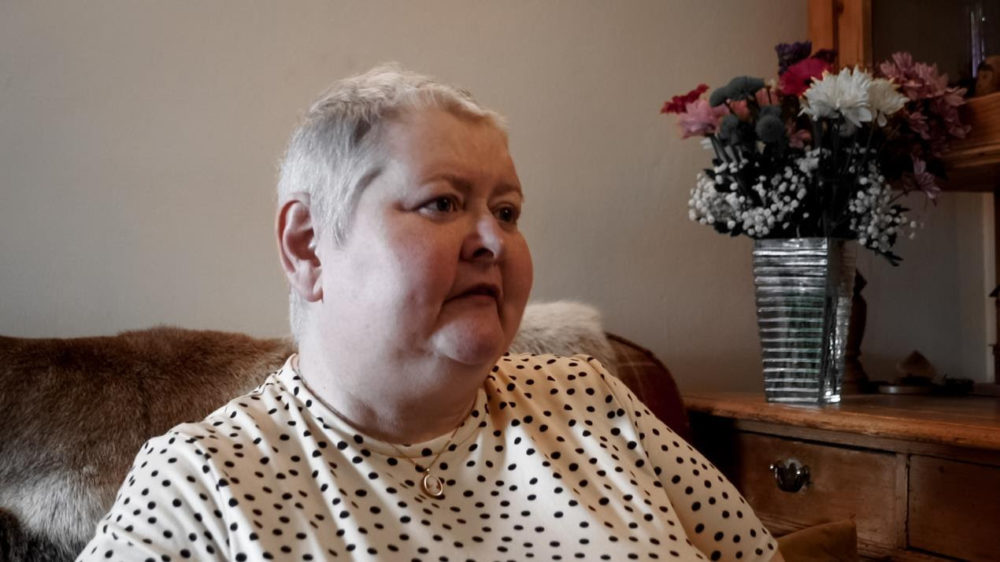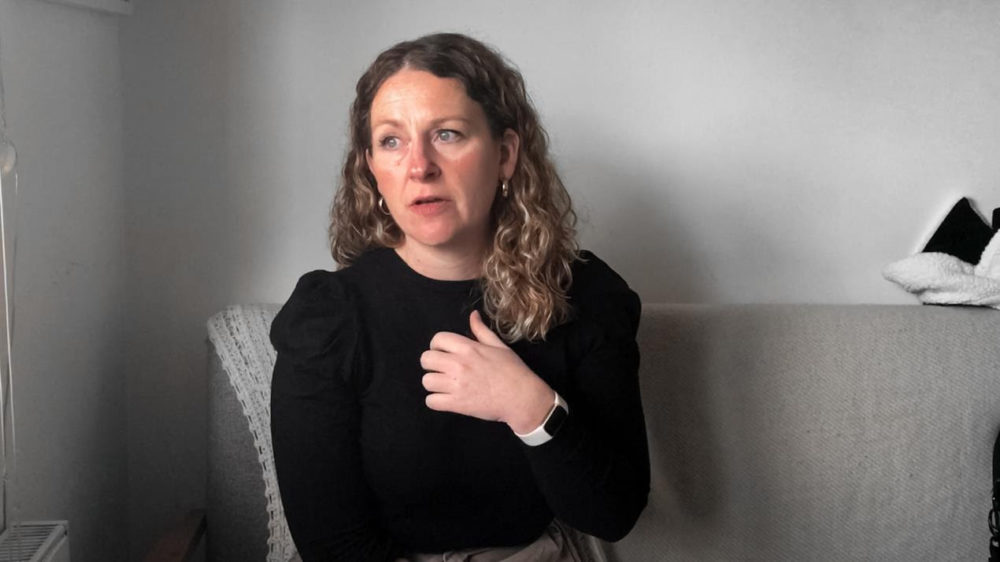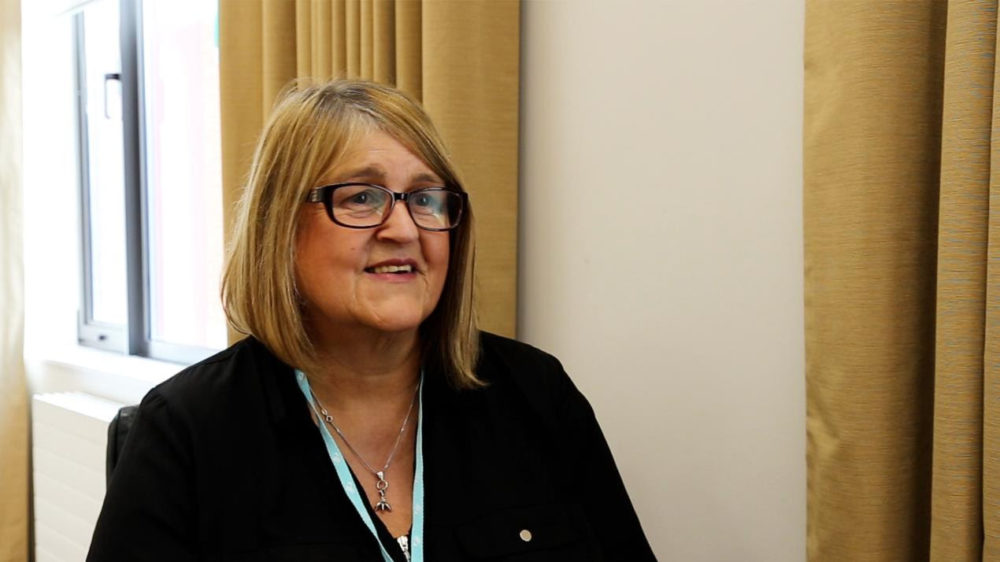Women’s cancer concerns dismissed and ‘not taken seriously’

Too often, women are being sent away with a diagnosis for more common illnesses when they actually have gynaecological cancer according to a new Senedd report.
A Senedd Committee has heard evidence that women feel their concerns are often dismissed or downplayed, and that they can be made to feel like a neurotic nuisance.
Today (6 December), The Senedd’s Health and Social Care Committee has published a report about gynaecological cancer care in Wales – Unheard: Women’s journey through gynaecological cancer.
The report contains 26 recommendations to Welsh Government about how women’s health services should be better supported and how to stamp out a dangerous bias which is putting lives at risk.
During their work, members of the Committee heard powerful evidence from women who were left dealing with the lifechanging consequences when their concerns were repeatedly dismissed by healthcare professionals.

Claire’s story
Claire O’Shea from Cardiff was diagnosed with Uterine Leiomyosarcoma, a rare and aggressive cancer, almost two years after first raising symptoms with her GP.
“I’d been going back and forth to my GP over several months. I carried on going back and forth and ended up with a diagnosis of irritable bowel syndrome—was given medication for IBS. I knew it wasn’t IBS,” said Claire in her evidence to the Committee.
“I went to Istanbul on a holiday with some friends and went to a hammam, which is a Turkish bath where you get washed and a massage. When I was in there, the woman stopped the massage and in broken English said, “Lady, baby?” thinking I was pregnant.
“I went white. I knew I wasn’t pregnant, but it all became very apparent to me then that the lump was, actually, probably in my reproductive organs. And I remember talking to my friends, like, “My God. How is a Turkish masseuse doing a better job of telling me what’s wrong with me than my GP has for months?”
Since first taking part in the inquiry, Claire’s cancer is now at stage 4 and has spread to her liver, lungs and bones. Claire is sharing her story to increase awareness of Uterine Leiomyosarcoma.
Judith’s story
Judith Rowlands, from Anglesey (main picture, above) contacted her GP when she started bleeding after the menopause. She was eventually diagnosed with endometrial cancer and underwent a hysterectomy.
After surgery Judith experienced terrible pain and was convinced that the cancer was still there. However, her doctors felt this wasn’t the case, and insisted that they would not expect to see that type of cancer come back. Judith was finally sent for a scan which revealed that the cancer had returned and was now incurable.
Judith wanted her story to be told in the hope it can prevent other women going through what she has. Judith passed away in May 2023, shortly after her video was shown to the Committee.

Linda’s story
Linda Drew, from the Vale of Glamorgan, didn’t know about ovarian cancer until she was diagnosed.
“I saw this list and I’d literally ticked every one: the bloated stomach, stomach pain, needing to wee more often, extreme fatigue. If I’d seen one of those posters a year before, at least I would have said to my doctor, ‘Look, can I have this? I think I’ve got this ovarian cancer.’,” said Linda in her testimony to the Committee.
Her symptoms were mistaken for IBS (irritable bowel syndrome) and urinary tract infections, which have similar symptoms to ovarian cancer. A conversation over dinner with a friend, who is a surgeon, eventually led to her diagnosis. Linda’s been cancer free for 13 years and she now shares her story whenever she can to help other women.
Claire, Judith and Linda’s stories, which were shown on video to the members of the Committee during a public meeting, can be seen on the Senedd website. Content Warning – the clips contain themes that some viewers may find upsetting.
Women know when something is wrong
The experiences shared by Claire, Judith, Linda, and several others, echo the evidence brought to the attention of the Committee by organisations such as Tenovus Cancer Care, Target Ovarian Cancer and Jo’s Cancer Trust among others
“The Committee feels privileged to have heard extremely powerful testimonies from courageous women such as Judith Rowlands, Claire O’Shea and Linda Drew,” says the Chair of the Senedd’s Health and Social Care Committee, Russell George MS.
“We were struck by their determination to raise awareness of gynaecological cancers, and in awe of Judith’s tenacity to ensure her story was heard during the most difficult days. Through their harrowing accounts all the women who shared their stories with us have brought to the fore the realities of these devastating conditions.
“Early on in our inquiry, it was clear that women feel their health concerns are not being taken seriously. Their symptoms are often dismissed or downplayed, and, in many cases, they are made to feel like a neurotic nuisance. We’re not suggesting that every woman has a bad experience, but it does seem that when things go wrong, they go badly wrong.
“Gender bias can influence how healthcare professionals perceive and interact with female patients. Stereotypes and preconceived notions about women’s emotions and pain tolerance can lead to dismissive attitudes. Ultimately, women know their own bodies. They know when something is wrong, and those concerns must be listened to and acted upon.
“In our report, we have presented Welsh Government with 26 recommendations on how services can be improved for women with gynaecological cancers. We must see urgent action so that other women will not have to go through what Claire, Judith, Linda and countless others did.”
Marie Curie Senior Policy Manager, Natasha Wynne, said: “One in ten women aged under 65 and one in four women aged over 75 who die from gynaecological cancers are not registered with specialist palliative care services, and the Health and Social Care Committee have acknowledged the need for earlier access to palliative care for people with incurable cancer.
“As the UK’s leading end of life charity, we know there is still a misconception that palliative care is only for people at the very end of their life. Introducing palliative care earlier in the pathway will help to ensure that women get the specialist support they need for pain and other distressing physical and psychological symptoms they are likely to face – support that the inquiry has revealed too many women sadly miss out on.
“With that in mind, we look forward to hearing more from Welsh Government about progress made in implementing the quality statement for palliative and end of life care, and how they are ensuring more equitable access to palliative care, when they respond to the Committee’s report.”
Public awareness
The Committee is calling on Welsh Government to fund frequent and far-reaching public awareness campaigns to raise the profile of the symptoms and encourage women to seek medical attention promptly. It should also be better known that cervical screening will not detect the other types of gynaecological cancers.
Better support for GPs should also be a priority. As the first port of call for so many ailments, recognising the signs and symptoms of cancer isn’t straightforward. The Committee want to see more education opportunities for GPs, to keep up with latest guidelines, and for them to receive support from secondary care to assist in the assessment and referral of patients with potential gynaecological cancers.
Support our Nation today
For the price of a cup of coffee a month you can help us create an independent, not-for-profit, national news service for the people of Wales, by the people of Wales.







Too many GPs (often older males ones) have a poor understanding of women’s gynaecological needs and too often misdiagnose early signs of cancer as “women’s problems” and dismiss the concerns of the patient.